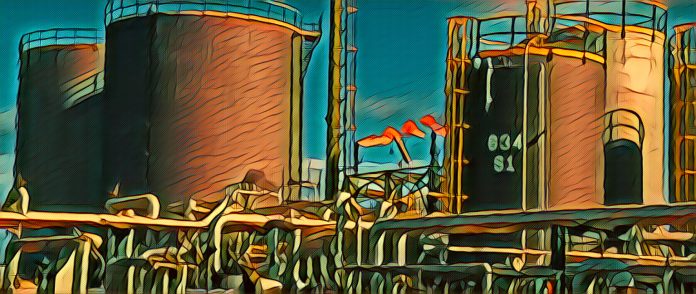Nigeria, Africa’s largest oil producer, is poised to become a major player in the global refining market as the Dangote refinery, the continent’s biggest, is expected to start operations in October 2023.
The refinery, owned by Nigerian billionaire Aliko Dangote, has a capacity of 650,000 barrels per day (bpd), making it the world’s largest single-train refinery. It will process crude oil from Nigeria and other African countries, as well as from international markets.
The refinery is part of a $20 billion integrated complex that includes a petrochemical plant, a fertilizer plant, a gas pipeline, and a seaport. The complex is located on a 6,180-acre site at the Lekki Free Zone in Lagos, Nigeria’s commercial hub.
The project, which began in 2013, has faced several delays due to technical and logistical challenges and the impact of the COVID-19 pandemic. However, according to a report by S&P Global Platts, the refinery is now in the final stages of commissioning and testing and is on track to begin production in October.
The report quoted Devakumar Edwin, the group executive director of Dangote Industries Limited, saying that the refinery will produce gasoline, diesel, jet fuel, kerosene, and liquefied petroleum gas (LPG), among other products. He said that the refinery will meet Nigeria’s domestic demand for refined products, which is estimated at 370,000 bpd, and also export surplus to regional and international markets.
The refinery will also help Nigeria reduce its dependence on imported fuel, which annually costs the country billions of dollars in subsidies and foreign exchange. Nigeria has four state-owned refineries with a combined capacity of 445,000 bpd, but they have been operating at low levels or shut down for years due to poor maintenance and sabotage.
The Dangote refinery is expected to create thousands of direct and indirect jobs and boost the country’s industrial and agricultural sectors. The petrochemical plant will produce polypropylene and polyethylene, which are used for making plastics and packaging materials. The fertilizer plant will produce urea and ammonia, which are used for making fertilizers and explosives.
The gas pipeline will supply natural gas from Nigeria’s oil fields to the complex and other industries in the area. The seaport will facilitate the import and export of crude oil, refined products, and other goods and services.
The Dangote refinery is seen as a strategic investment for Nigeria’s economic diversification and development. President Muhammadu Buhari has praised the project as a “landmark achievement” that will enhance Nigeria’s energy security and competitiveness. He said:
“We are proud of this project because it demonstrates clearly that we can achieve anything we set out to do as a nation if we work together with determination and perseverance.”
The Dangote refinery is also a testament to the vision and ambition of Aliko Dangote, Africa’s richest man, who has built a business empire that spans cement, sugar, salt, flour, and other sectors. He said: “This project is not just about refining crude oil. It is about transforming Africa’s energy landscape and empowering millions of people with quality products and services that can improve their lives.”
Source: Business Insider



